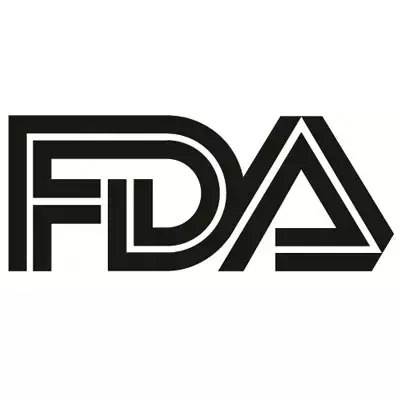- Home
- Medical news & Guidelines
- Anesthesiology
- Cardiology and CTVS
- Critical Care
- Dentistry
- Dermatology
- Diabetes and Endocrinology
- ENT
- Gastroenterology
- Medicine
- Nephrology
- Neurology
- Obstretics-Gynaecology
- Oncology
- Ophthalmology
- Orthopaedics
- Pediatrics-Neonatology
- Psychiatry
- Pulmonology
- Radiology
- Surgery
- Urology
- Laboratory Medicine
- Diet
- Nursing
- Paramedical
- Physiotherapy
- Health news
- Fact Check
- Bone Health Fact Check
- Brain Health Fact Check
- Cancer Related Fact Check
- Child Care Fact Check
- Dental and oral health fact check
- Diabetes and metabolic health fact check
- Diet and Nutrition Fact Check
- Eye and ENT Care Fact Check
- Fitness fact check
- Gut health fact check
- Heart health fact check
- Kidney health fact check
- Medical education fact check
- Men's health fact check
- Respiratory fact check
- Skin and hair care fact check
- Vaccine and Immunization fact check
- Women's health fact check
- AYUSH
- State News
- Andaman and Nicobar Islands
- Andhra Pradesh
- Arunachal Pradesh
- Assam
- Bihar
- Chandigarh
- Chattisgarh
- Dadra and Nagar Haveli
- Daman and Diu
- Delhi
- Goa
- Gujarat
- Haryana
- Himachal Pradesh
- Jammu & Kashmir
- Jharkhand
- Karnataka
- Kerala
- Ladakh
- Lakshadweep
- Madhya Pradesh
- Maharashtra
- Manipur
- Meghalaya
- Mizoram
- Nagaland
- Odisha
- Puducherry
- Punjab
- Rajasthan
- Sikkim
- Tamil Nadu
- Telangana
- Tripura
- Uttar Pradesh
- Uttrakhand
- West Bengal
- Medical Education
- Industry
FDA approves pemigatinib as first treatment for advanced cholangiocarcinoma

The U.S. Food and Drug Administration has approved pemigatinib as first treatment for adults with certain types of previously treated, advanced cholangiocarcinoma.
The FDA has granted approval of Pemazyre to Incyte Corporation.
Cholangiocarcinoma is a rare form of cancer of bile duct which is difficult to treat.Today's approval is for patients with cholangiocarcinoma that is locally advanced )or metastatic and who have tumors that have a fusion or other rearrangement of a gene called fibroblast growth factor receptor 2 (FGFR2).
"This approval demonstrates that while we continue to focus our efforts on addressing the COVID-19 pandemic, the FDA remains committed to the important work of reviewing treatments for patients with cancer and other serious conditions," said Richard Pazdur, M.D., director of the FDA's Oncology Center of Excellence and acting director of the Office of Oncologic Diseases in the FDA's Center for Drug Evaluation and Research. "With Pemazyre, we considered the observed efficacy results to be clinically meaningful and the overall risk to benefit assessment for patients with tumors harboring FGFR2 gene fusions and other rearrangements to be favorable, particularly when we considered that these patients have no other good options following first line treatment with chemotherapy."
At diagnosis, a majority of patients with cholangiocarcinoma have advanced disease, meaning that the disease is no longer treatable with surgery. For these patients, until today, there have been no FDA-approved therapies; a combination of chemotherapy drugs has been the standard initial treatment. FGFR2 fusions have been found in the tumors of approximately 9% to 14% of patients with cholangiocarcinoma. Pemazyre is a tablet that works by blocking FGFR2 in tumor cells to prevent them from growing and spreading.
Pemazyre's approval was based on the results of a clinical trial that enrolled 107 patients with locally advanced or metastatic cholangiocarcinoma with an FGFR2 fusion or rearrangement who had received prior treatment. During the clinical trial, patients received Pemazyre once a day for 14 consecutive days, followed by 7 days off, in 21-day cycles until the disease progressed or the patient experienced an unreasonable level of side effects. To assess how well Pemazyre was working during the trial, patients were scanned every eight weeks. The trial used established criteria to measure how many patients experienced a complete or partial shrinkage of their tumors during treatment (overall response rate). The overall response rate was 36%, with 2.8% of patients having a complete response and 33% having a partial response. Among the 38 patients who had a response, 24 patients (63%) had a response lasting 6 months or longer and 7 patients (18%) had a response lasting 12 months or longer.
The most common adverse reactions occurring in 20% or more of patients who received Pemazyre are hyperphosphatemia and hypophosphatemia (electrolyte disorders), alopecia (spot baldness), diarrhea, nail toxicity, fatigue, dysgeusia (taste distortion), nausea, constipation, stomatitis (sore or inflammation inside the mouth), dry eye, dry mouth, decreased appetite, vomiting, joint pain, abdominal pain, back pain and dry skin. Ocular (eye) toxicity is also a risk of Pemazyre.
The FDA granted this application Priority Review and Breakthrough Therapy designation, which expedites the development and review of drugs that are intended to treat a serious condition, when preliminary clinical evidence indicates that the drug may demonstrate substantial improvement over available therapies. Pemazyre received Orphan Drug designation, which provides incentives to assist and encourage the development of drugs for rare diseases. As a condition of the accelerated approval, the sponsor will complete and submit the results of a randomized trial demonstrating an improvement in progression-free survival or overall survival as a postapproval requirement.
Dr Kamal Kant Kohli-MBBS, DTCD- a chest specialist with more than 30 years of practice and a flair for writing clinical articles, Dr Kamal Kant Kohli joined Medical Dialogues as a Chief Editor of Medical News. Besides writing articles, as an editor, he proofreads and verifies all the medical content published on Medical Dialogues including those coming from journals, studies,medical conferences,guidelines etc. Email: drkohli@medicaldialogues.in. Contact no. 011-43720751


